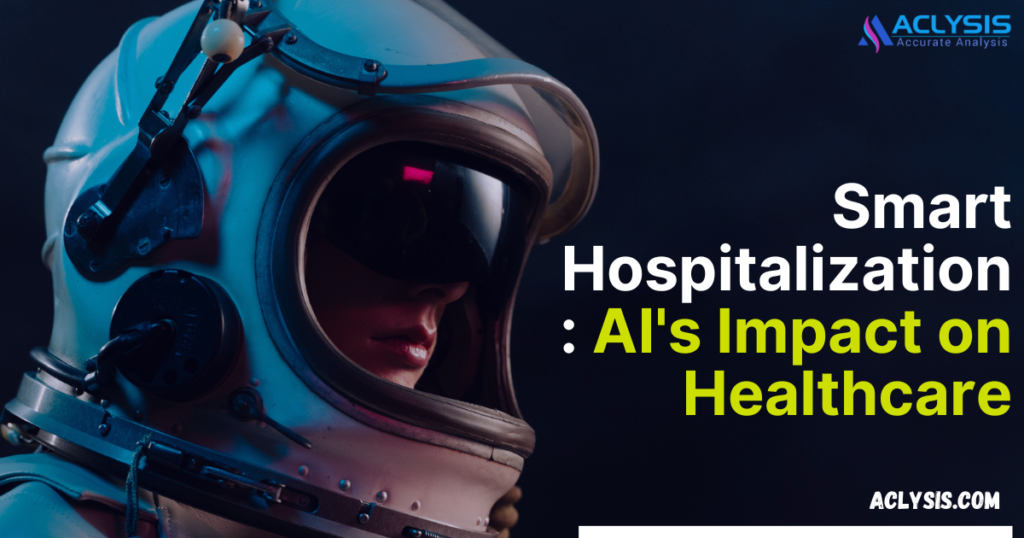
Introduction:
In recent years, the healthcare industry has witnessed a transformative shift with the integration of Artificial Intelligence (AI) into various aspects of medical care. One of the most promising applications of AI in healthcare is the optimization of hospitalization processes. This article explores the ways in which AI is being implemented to enhance efficiency, reduce costs, and improve patient outcomes during hospitalizations.
Predictive Analytics for Patient Admission:
AI algorithms are increasingly being used to analyse vast amounts of patient data to predict potential admissions. By considering historical patient records, demographic information, and health indicators, AI models can identify individuals at high risk of hospitalization. This proactive approach allows healthcare providers to intervene early, providing timely and preventive care to reduce the likelihood of hospital admissions.
Bed Management and Resource Allocation:
Efficient bed management is crucial for hospitals to provide timely care to patients. AI helps in optimizing bed utilization by predicting the length of stay for admitted patients and identifying potential discharges. By integrating real-time data on bed availability, staffing levels, and patient acuity, AI algorithms assist in allocating resources effectively, minimizing wait times, and ensuring that critical cases receive prompt attention.
Personalized Treatment Plans:
AI-driven algorithms analyse patient data to create personalized treatment plans, taking into account individual health histories, genetic factors, and responses to previous treatments. This personalized approach not only enhances patient satisfaction but also contributes to quicker recovery times and reduces the likelihood of readmissions.
Clinical Decision Support Systems (CDSS):
AI-powered CDSS aids healthcare professionals in making informed decisions by analysing patient data, medical literature, and best practices. These systems provide real-time recommendations for diagnostics, treatment options, and medication management, ultimately leading to more accurate and timely interventions, reducing errors, and improving overall patient care.
Remote Patient Monitoring:
AI-driven remote patient monitoring tools enable healthcare providers to keep track of patients’ health outside the hospital setting. By continuously collecting and analysing vital signs and other relevant data, AI can alert healthcare teams to potential issues, allowing for early intervention and reducing the need for hospital readmissions.
Optimizing Workflow and Administrative Processes:
AI is also streamlining administrative tasks, such as scheduling, billing, and inventory management. Automation of these processes not only reduces the burden on healthcare staff but also minimizes errors and ensures a more efficient operation of hospital resources.
Fraud Detection and Billing Optimization:
AI plays a significant role in detecting fraudulent activities in billing and insurance claims. By analyzing patterns and anomalies in billing data, AI systems can identify discrepancies and potential fraud, ensuring fair and accurate billing practices.
The integration of AI into hospitalization processes represents a paradigm shift in the healthcare industry. By leveraging predictive analytics, personalized treatment plans, clinical decision support systems, and remote patient monitoring, hospitals can optimize resource utilization, improve patient outcomes, and enhance overall efficiency. As technology continues to advance, the synergy between AI and healthcare holds the promise of creating a more patient-centric, cost-effective, and sustainable healthcare ecosystem.

